Lichuan Gongfu Thé noir (Lichuan Hong)
Lichuan Gongfu Thé noir (Lichuan Hong)
Impossible de charger la disponibilité du service de retrait
Ce thé noir exceptionnellement parfumé de Lichuan, dans la préfecture d'Enshi, est un véritable joyau caché de la Chine. Notre thé noir de Lichuan offre de délicieuses notes de miel et de sucre brun, ce qui en fait un compagnon idéal pour les repas copieux ou les friandises sucrées.
Histoire du thé noir du Lichuan
Le thé noir Lichuan Kungfu, également connu sous le nom de Lichuan Hong, a une riche histoire qui remonte à plus de 2800 ans à Lichuan, dans le Hubei. Selon les archives historiques, les cultivateurs de thé du Lichuan cultivent le thé depuis la dynastie des Zhou de l’Ouest, et leur artisanat a prospéré pendant la dynastie Qing.
L’émergence du thé noir Lichuan Kungfu, tel que nous le connaissons aujourd’hui, remonte au milieu du 19ème siècle. Cette région est caractérisée par de hautes montagnes et des forêts denses, créant l’environnement idéal pour que les théiers prospèrent.
En 2018, Lichuan a attiré l’attention nationale lorsque le président chinois Xi Jinping et le président indien Modi ont partagé une tasse de thé noir gongfu du Lichuan lors de leur sommet à Wuhan. Aujourd’hui, ce thé est l’un des meilleurs thés noirs gongfu de Chine.
Lichuan Hong Processus et apparence
Pour produire du thé noir de Lichuan, des feuilles de thé fraîches sont soigneusement cueillies à la main pendant la saison printanière. Ces feuilles subissent un processus de flétrissement, de roulage, de fermentation et de séchage. Le thé qui en résulte présente une forme fine, serrée, plate et uniforme, avec des bourgeons dorés visibles.
Lorsqu’il est infusé, le thé noir du Lichuan révèle une teinte rouge-dorée vibrante, accompagnée d’un parfum riche et durable, et d’un goût délicieusement sucré et doux.
Semblable à notre thé vert Enshi Yulu, le thé noir du Lichuan est réputé pour sa teneur saine et abondante en sélénium.
Origine
Origine
- Year: 2025
- Season: Spring
- Origin: Lichuan, Enshi prefecture, Hubei province
- Varietal (cultivar): small leaf Assamica (Xiao Ye Zhong), echa no. 1
- Type: black tea
Comment préparer le thé
Comment préparer le thé
How to brew Lichuan black tea?
There are two methods to makes this loose leaf black tea:
Gongfu brewing
Brew 5 gram with 100 ml of water at 80 °C. Steep for 5 seconds and add 5 seconds for each next infusion.
Western brewing
Steep 3 gram with 500 ml of water at 80 °C. Apply a brewing time of 40 seconds and add 20 seconds for each next infusion.
Expédition, retours et méthodes de paiement
Expédition, retours et méthodes de paiement
Délai de livraison : 1 à 10 jours pour l'UE. Pour des estimations par pays, veuillez consulter la page d'informations sur la livraison au bas de notre site Web.
Taxes douanières : comme nous livrons depuis notre entrepôt de l'UE, aucune taxe ne vous sera facturée à la livraison. Toutes les taxes sont déjà incluses dans nos prix.
Livraison gratuite : disponible pour les commandes supérieures à 59 € pour les Pays-Bas/Belgique, 80 € pour la France, les autres pays de l'UE et le Royaume-Uni, et plus de 100 € pour les pays hors UE.
Retours : les commandes peuvent être retournées pour un remboursement dans les 30 jours. Les produits doivent être retournés dans un état non ouvert et non utilisé.
Partager





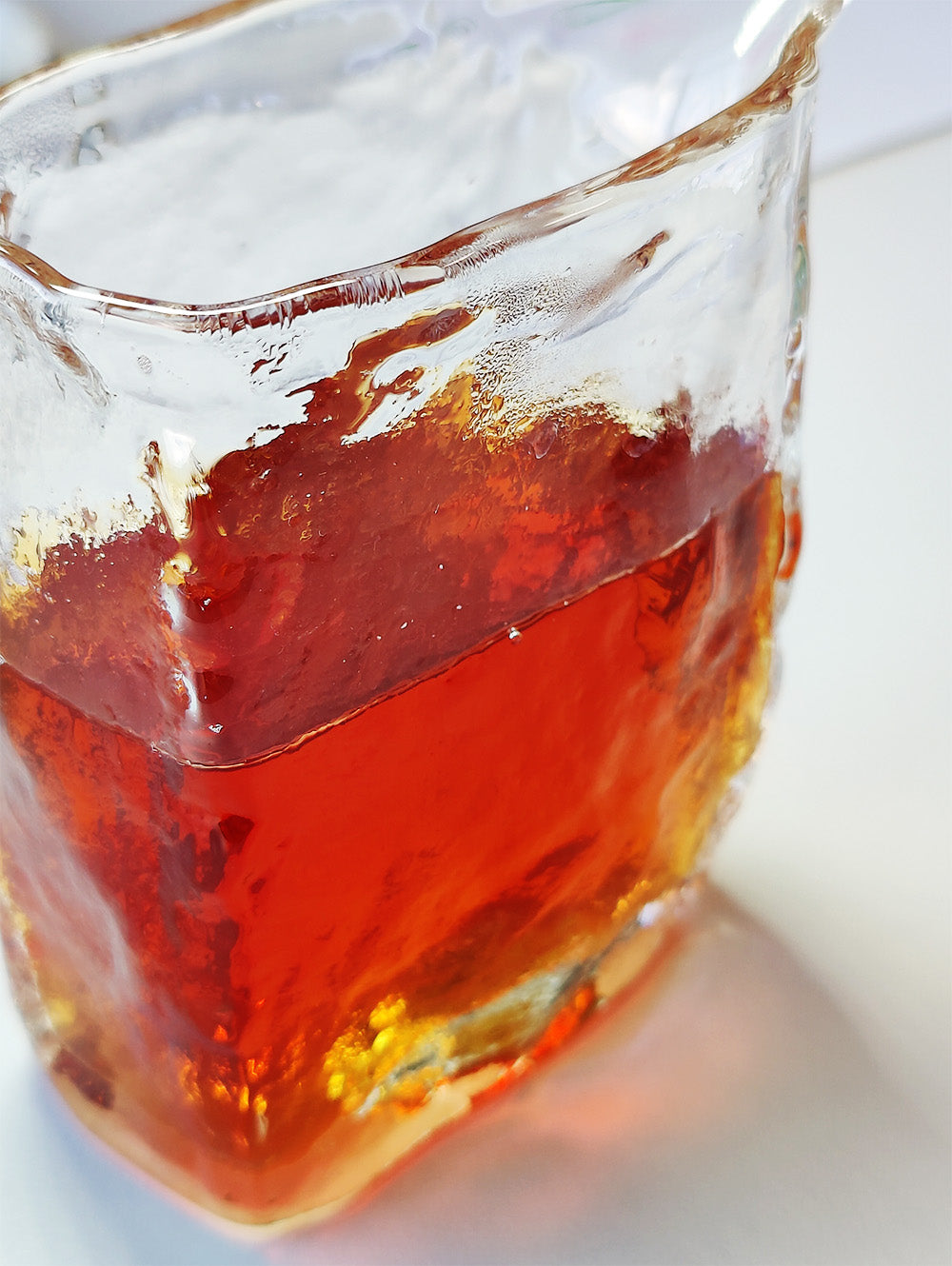
How this black tea is made
-
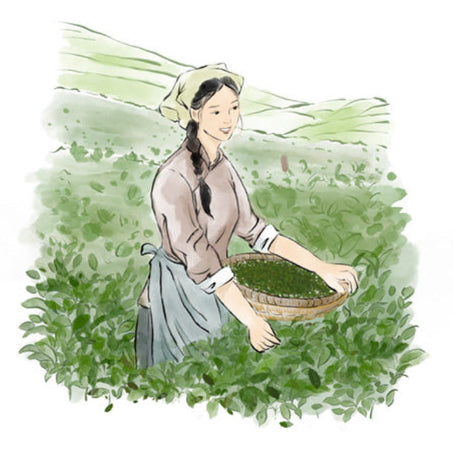
Picking
Tea leaves are hand-picked in the morning.
-
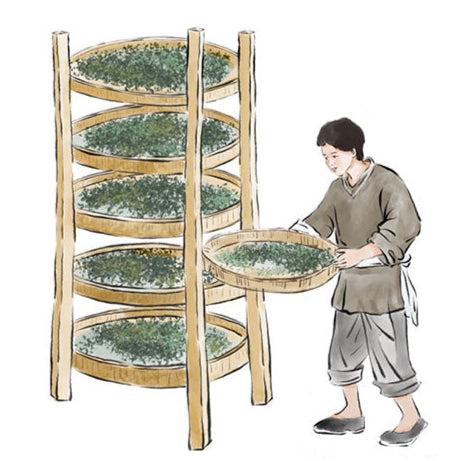
Withering
The leaves are spread on bamboo trays to wither.
-
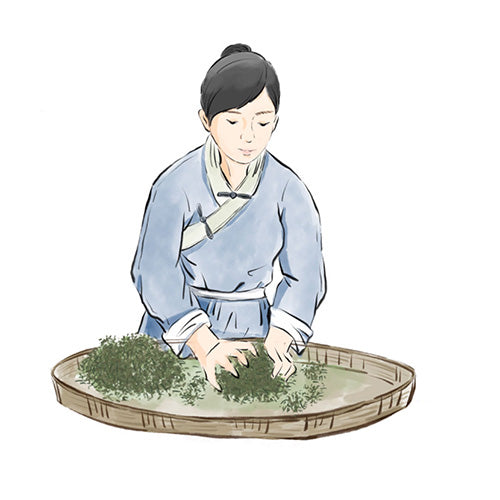
Rolling
Leaves are rolled, breaking down the surface cells and promoting oxidation.
-
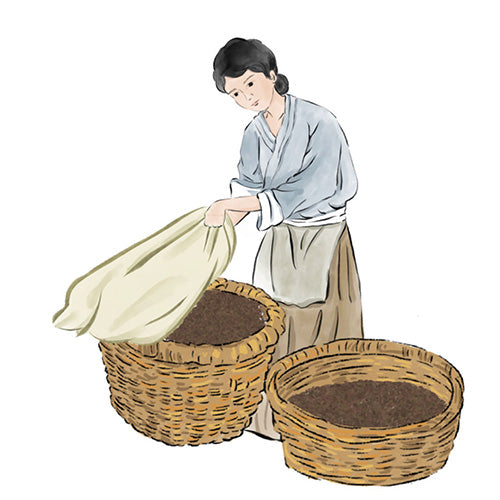
Oxidation
Rolled leaves are oxidized in bamboo baskets covered with a cloth.
-
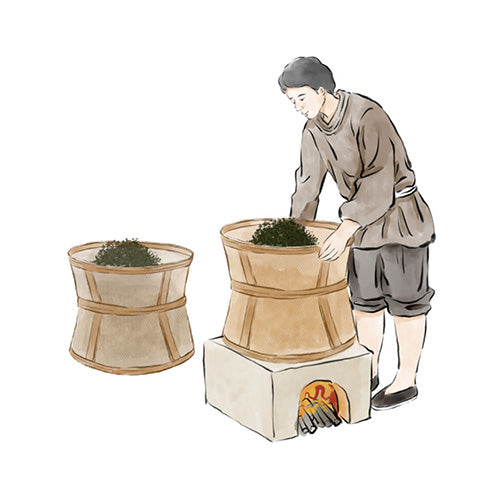
Drying
The oxidized leaves are dried to reduce moisture to a minimum.
-
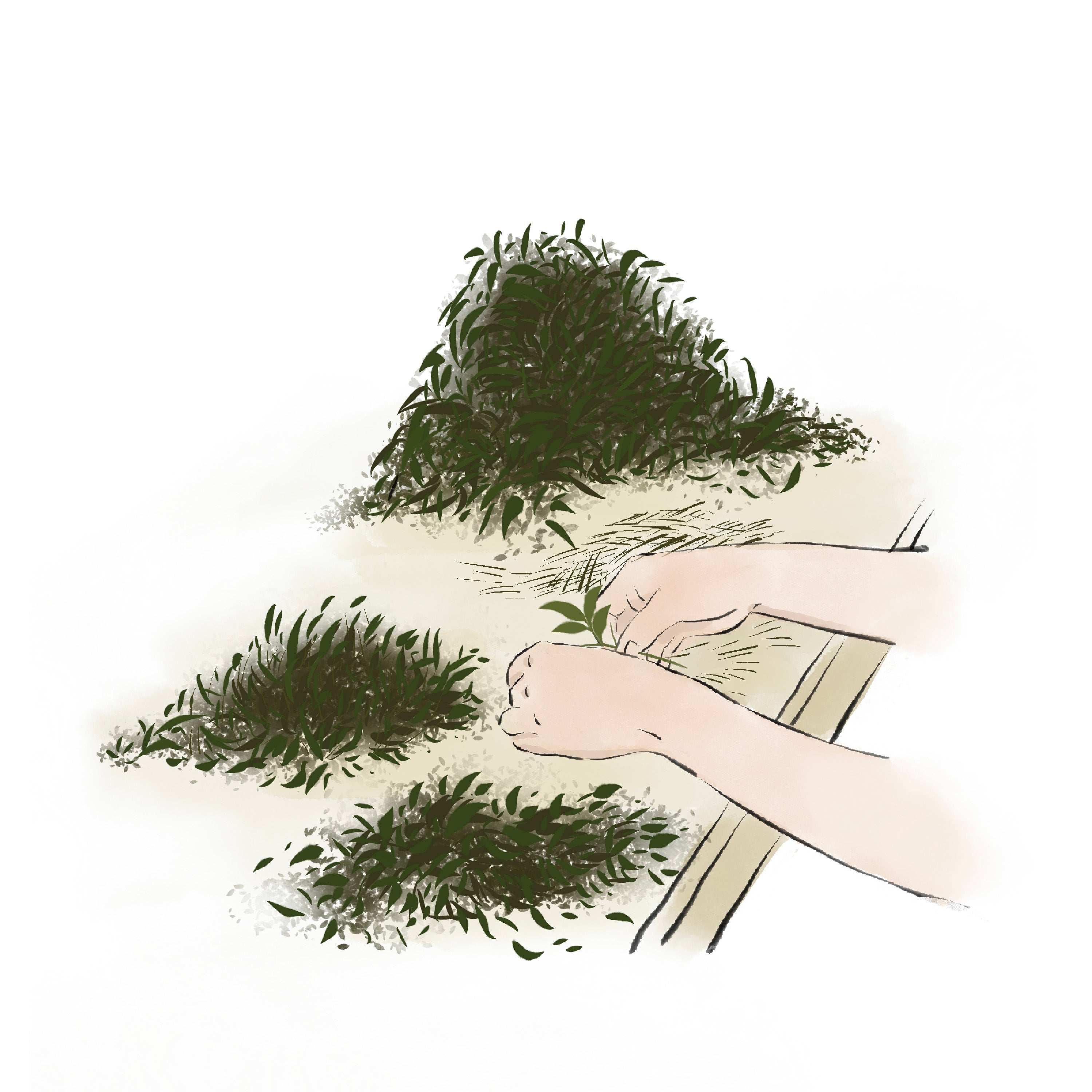
Sorting
The tea leaves are sorted manually or mechanically.
It is really nice soft black tea. It is surprisingly sweet, but in good way. Mild aroma, gentle taste with sweetness, umami and some caramel hint. It is not very bright, so maybe not suitable for people who prefer strong taste with character.
Perfect tea for a sweet breakfast
The flavor has a distinct boldness to it, it's the first thing I noticed about this tea, sort of like being bitter without actually tasting bitter, it is very pleasant. Personally I prefer steeping it at 75°C to subdue that boldness a bit and let the rich sweetness underneath shine through. All around a very interesting tea, great if you prefer really bold ones, also great if you prefer more delicate ones.
Thanks sharing the steeping advice! I'm sure those who read your review will find it useful.
Brewing: 5g/100ml, 80°C, 5s, +5s.
Warmed-up dry leaves smell of stone fruit, chocolate and smoked bacon. When wet, they get meatier.
The liquor is a perfect blend of fruit, delicate cocoa and meat umami. Very good taste. One of the best black teas I've had. Score: 11/10. Good for 10 steeps.

Notre travail de design s'inspire de l'œuvre « Le long de la rivière pendant le Festival Qingming » de Zhang Zeduan, datant de la dynastie Song. Au lieu de représenter la vie quotidienne des habitants de la capitale chinoise (comme dans l'œuvre originale), nous illustrons le processus de fabrication du thé par les agriculteurs, adoptant la même perspective à vol d'oiseau.
En observant notre design d'emballage en détail, les amateurs de thé pourront découvrir les étapes de production : les cultivateurs cueillant, séchant, roulant et torréfiant les feuilles de thé. Le thé est ensuite dégusté dans un pavillon, puis transporté par des chevaux le long de « l’ancienne route du thé ».
L’alliance entre le paysage traditionnel chinois et le thème de la fabrication du thé symbolise l'héritage, la tradition et le respect pour le dur labeur des cultivateurs de thé.












